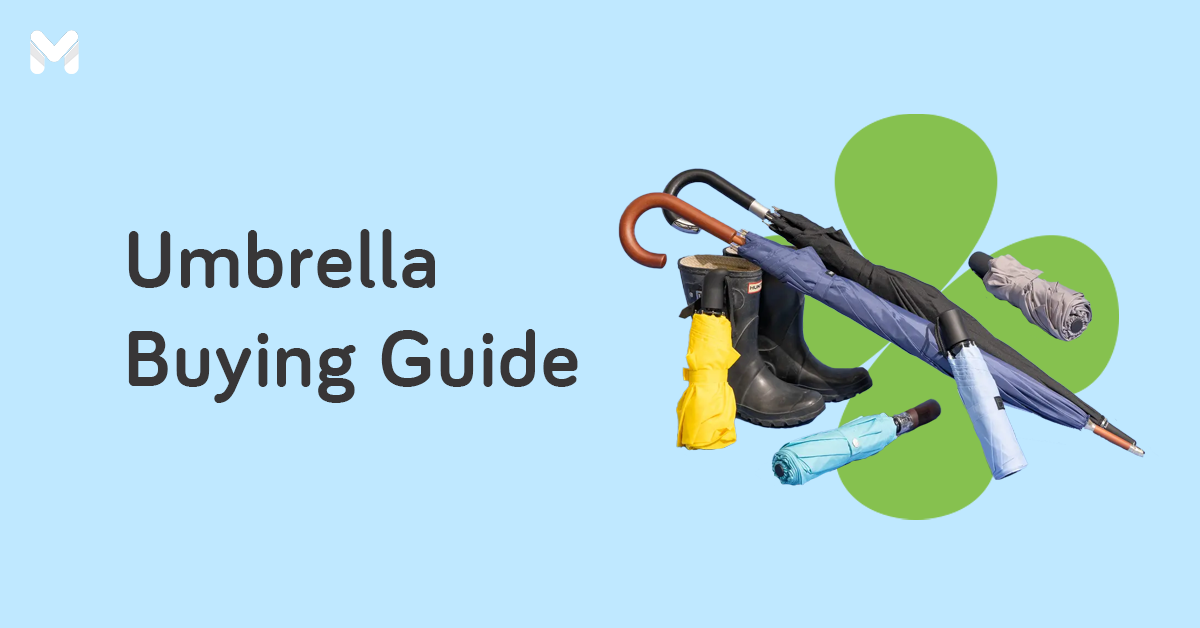Got too many items on your holiday shopping list? Even the stingiest person feels the temptation to overspend during Christmas, the most beloved of Philippine holidays.
The pre- or post-Christmas urge to splurge is so strong, it's hard to resist. It's the perfect time to treat yourself and your loved ones, after all! But with this list of Christmas shopping tips, you can still do so while keeping your holiday spending in check.
11 Christmas Shopping Tips to Curb the Urge to Splurge
Here are 11 practical Christmas shopping tips to help you beat the urge to splurge when shopping.
1. Fulfill Your Important Financial Obligations First
What's the first thing that comes to mind as soon as you receive your 13th month pay or bonus? "I should upgrade my phone." "I can finally buy that designer bag!" "I deserve a new pair of shoes."
But soon, reality slaps you hard in the face: piling bills, debts, and depleting or non-existent savings.
Before you go on a Christmas shopping spree, allocate your money to things that matter. Clear your debts, increase your emergency fund, and diversify your investments (or start investing, if you haven't done so yet).
2. Create a Christmas Financial Checklist
Done taking care of your financial obligations? Don't spend your Christmas shopping fund just yet. What with all the gifts, parties, and trips, all that holiday spirit can strain your finances.
Before anything else, prepare your financial checklist for the holidays. This will help you anticipate all your expenses, shop in advance if needed, remove any non-essentials, and budget accordingly. When you plan beforehand, you also save money.
So what exactly should be on your Christmas financial checklist? First, of course, is the Noche Buena food. Food prices tend to spike between November and January, so shop around for the best value for your money. To reduce expenses, plan a potluck party instead.
Meanwhile, if you're shopping online for gifts, keep shipping fees in mind. Schedule your shopping during big sales so you can take advantage of promos. You can also go the DIY route for the extra special people in your life.
For trips, keep in mind that travel expenses, such as airfare and hotel rooms, spike in prices nearer to the holidays. If you're planning to drive to nearby provinces, it’s a good time to update your car insurance.
3. Set a Realistic Christmas Shopping Budget

Now that you have your financial checklist, make a clear-cut budget for your Christmas shopping. Aside from food, gifts, and travel costs, consider miscellaneous expenses such as gift wrappers, greeting cards, commuting costs, and decorations.
To organize your budgeting, create a spreadsheet showing the total cost, total spent to date, remaining amount, and expense breakdown. Alternatively, consider downloading a budgeting app for tracking your holiday spending.
4. Make a Holiday Gift Shopping List

Channel your inner Santa! Make a list—and check it twice—before you shop for Christmas presents. You'll be able to stick to your planned purchases and fight the urge to buy the stuff you don't really need.
What should your holiday gift list include?
- Names of people you'll buy presents for
- Gift ideas for each recipient
- Price range for each gift or recipient
- Name of the store where you'll buy each gift
- Status (whether you've finished buying each gift or not)
Be practical when planning your holiday presents. Sometimes the most effective gifts aren’t things people want, but things they don’t realize they need. Try thinking outside the box, but be mindful of your recipient’s preferences.
Got a cousin who’s redecorating their home? Find tasteful but functional furnishings like bookends or storage containers. Got a friend with a creative streak? Pay attention to the art supplies or writing materials they like. Can’t think of anything? Find gift certificates from department stores and other specialty boutiques your recipient frequents.
5. Use a Prepaid Card
If you can't seem to curb your urge to overspend, then you've got to take drastic action. Leave your credit card at home every time you go to a mall—at least until the holiday season is over.
A prepaid card is a good alternative, as it allows you to spend only within your budget. Just load a set amount and use it like a credit card for your holiday expenses.
6. Understand What Triggers Your Impulse Buying and Act on It

Ask yourself: "What motivates me to buy impulsively?"
Be honest with yourself. Knowing your spending triggers[1] helps you not only control your urge to splurge but also make wise decisions when Christmas shopping.
For instance, if you usually splurge when you're stressed, find other affordable ways to relieve stress. You can do yoga or jog around the neighborhood. Studies show that exercise can improve one's ability to sustain self-control.[2]
Love online shopping? Those tempting ads on Facebook and Instagram can easily lure you into hitting Add to Cart. Take a social media break during the holidays—also a good strategy for image-conscious people who give in to impulse buying to look good on social media.
If a social media detox isn't possible, simply unfollow online sellers on social media to avoid temptations.
7. Know the Warning Signs of Impulse Buying
One of the best ways to fight the urge to splurge is to catch yourself when you're about to do it.
Before you place an item into your shopping cart, ask yourself: "Did I plan to purchase it? Or did I get the urge to buy it just now?"
If "no" is your answer to the first question, and "yes" to the second, it's a sign you're about to make an impulse purchase. Put that item back on the shelf—you'll thank yourself later.
8. Determine Your Wants vs Needs
-3.png?width=674&height=449&name=Pics%20for%20blog%20-%20600x400%20(8)-3.png)
Chances are, there are products in your cart you don't actually need. Before you head to the counter, ask yourself whether you need a particular item or just want it.
An effective way to judge between your wants vs needs is to think about whether or not a particular purchase will help you achieve your goals in life. For example, if you're aiming for a healthy lifestyle, then it's easy to see you don't need to buy that deep fryer in your shopping cart.
9. Focus on the Amount You're Spending, Not the Discount
Holiday sales left and right—so many temptations to splurge! Admit it—you feel proud of yourself when you score a huge discount at the mall. But that feeling won't last because you'll find your wallet considerably thinner when you get home.
When Christmas shopping for gifts and other stuff, focus on the amount you're spending, rather than the amount you'll save.
Let's say you purchase a product worth ₱1,000 with a ₱300 discount. If you focus on savings, your mind is tricked into believing you gained ₱300. But if you focus on what you spent, you'll realize you're actually 700 bucks poorer. See the difference?
10. Ask for Somebody Else's Opinion
-3.png?width=674&height=449&name=Pics%20for%20blog%20-%20600x400%20(9)-3.png)
If fighting the urge to splurge is a battle you can't tackle alone, enlist someone else's help.
Before you make a big purchase, get feedback from people who make smart buying decisions, like a partner, sibling, or friend. They may offer perspectives you might not see yourself.
After letting someone review your purchase, you may realize that going for the cheaper option or discontinuing the purchase altogether is the wisest move.
11. Delay Your Purchase Decision
Ever noticed that during the holiday season, certain items are prominently displayed at the store entrance, tempting you before you even enter the aisle? That's a marketing strategy to lure impulse buyers—don't fall for it.
If something catches your attention, walk past and do your usual shopping. Give yourself time to think about it. You might forget about it altogether, or go home realizing it isn't worth buying at all.
Eyeing a gadget, appliance, or any high-ticket item? Wait at least two days before deciding whether to buy it or not. You're more likely to make a rational decision after spending some time thinking about it.
In the meantime, do your research on the item and read reviews. You don't want to splurge impulsively on a faulty item!
Final Thoughts
Keep these Christmas shopping tips in mind, so you won't have to deal with a holiday hangover in January, a high credit card balance (or worse, zero balance on your bank account), and a feeling of guilt and regret.
However, while it's important to save money during Christmas, you deserve to enjoy the holidays too. Reconnect with family and friends, savor the food, and gush over each others' presents. Take a breather and look back on all you’ve accomplished this year!

Sources:
- [1] What Motivates Impulse Buying? (Psychology Today)
- [2] How Exercise Might Increase Your Self-Control (The New York Times)







_1200x350.png?width=751&height=219&name=UB_PL_Generic_2_(Jan_2025)_1200x350.png)


